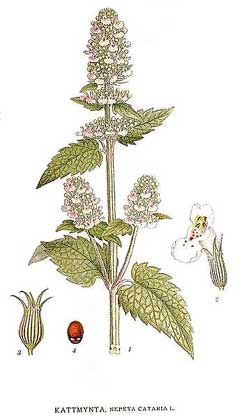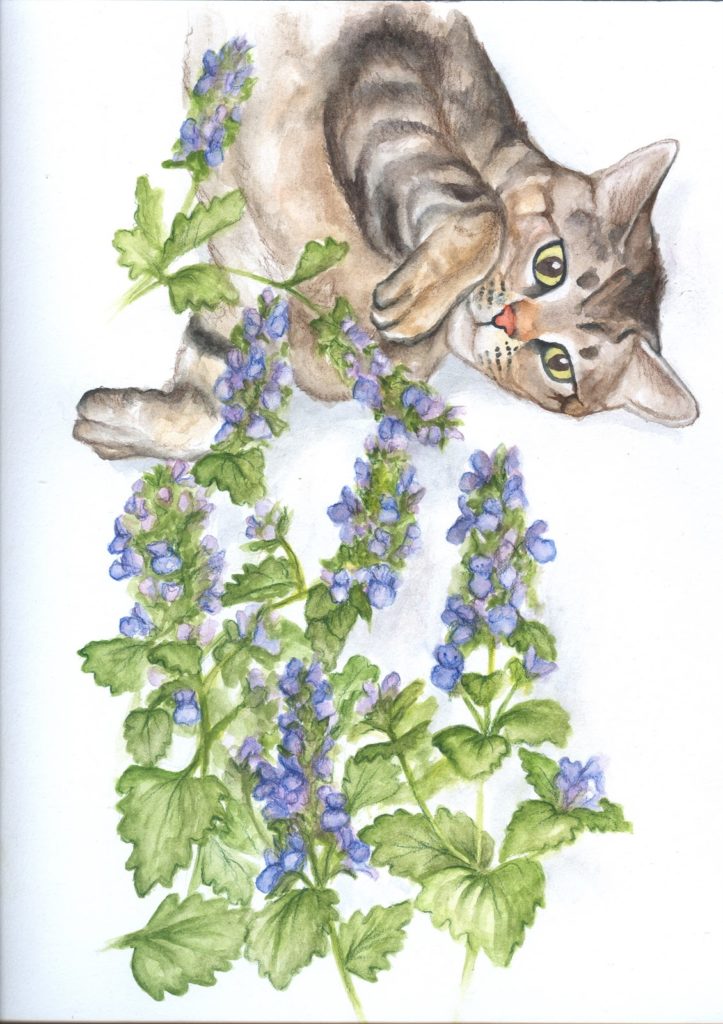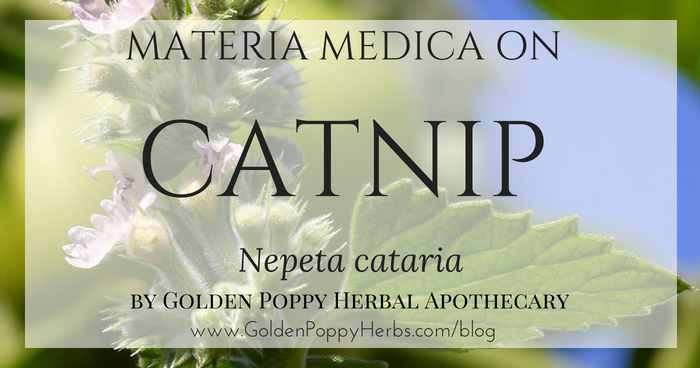THIS PLANT MAY SEND CAT'S INTO A FRENZY, BUT IT'S CALMING FOR BOTH CHILDREN AND ADULTS ALIKE
Catnip, a perennial herb belonging to the mint family, grows wild as a weed in every U.S. state except Florida and Hawaii. This weed, loved by the household cat for its stimulating effects, actually is traditionally believed to have sedative effects in humans, acting as a gentle nervine. Catnip is also traditionally regarded for its carminative and antispasmodic properties and may be used in the treatment of flatulence or an upset stomach.
While little scientific research has been performed on catnip, some in vitro studies suggest that catnip contains antibacterial, antiviral, and immunomodulatory properties. In line with these findings, catnip has also been traditionally used to treat colds, flu, and fevers. Catnip may also be helpful for keeping insects, including mosquitos, away as its essential oil has been used as an insect repellent.
Catnip's biggest benefit is that it is relatively safe for children of all ages; combined with it's dual properties of being able to calm the stomach as well as the nerves, it makes this herb the perfect remedy for the most common childhood complaints.

MATERIA MEDICA: CATNIP
Latin name: Nepeta cataria
Family: Laminaceae (Mint Family)
Parts Used: Leaf
Energetics: cool, dry, slightly bitter
Actions: Anodyne, antidiarrheal, antispasmodic, aromatic, astringent, carminative, diaphoretic, digestive, emmenagogue, febrifuge, mucolytic, nervine, sedative, stomachic
Uses:
- Upset stomach
- Trouble sleeping
- Stress relief
- Colds & Flus
- Teething children
- Colic
- Anxiety
- Headaches
- Fussy babies/children (or adults)
Preparation & Dosage:
- Tea: 1-2 tsp dried herb steeped in 10-12 oz hot water (best for colds & flus, upset stomachs, stress relief)
- Tincture: 30-60 drops directly in the mouth (best for small children/babies due to ease for issues such as teething, colic, upset stomachs, and general crankiness, older children would benefit from the tea as well
Cautions:
- Do not take during pregnancy
- In large doses, the tea can be emetic (causing vomiting)





